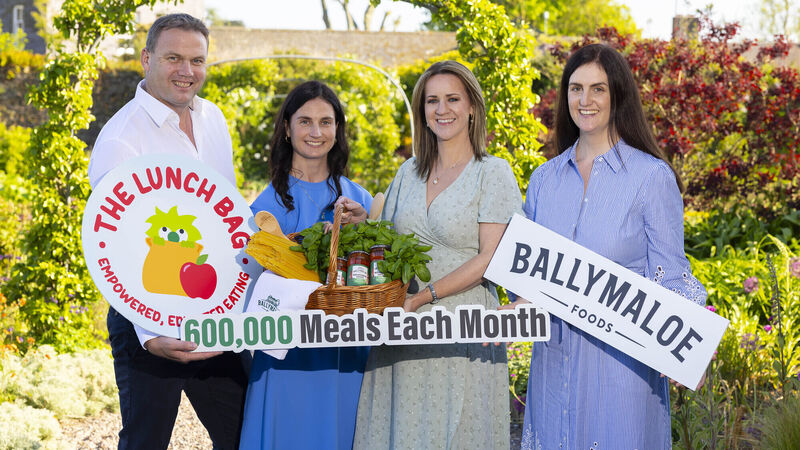Cianan Brennan: Hot school meals mess needs a rational solution

(Left to right) Ray Nangle, CEO of the Lunch Bag; Rosaleen Hyde, operations manager at Ballymaloe Foods; Ger Killian, managing director at the Lunch Bag and Maxine Hyde, general manager of Ballymaloe Foods at Ballymaloe House, Cork, after Ballymaloe Foods and The Lunch Bag renewed their partnership which will see 600,000 children in Ireland eating a hot school meal every month. Photo: Patrick Browne
Hot school meals were a long time coming for Irish primary schools.
A staple in other countries, the concept of a hot meal as part of your child’s daily education routine was and is something of a foreign concept to Irish parents. It has been a very welcome one.
















